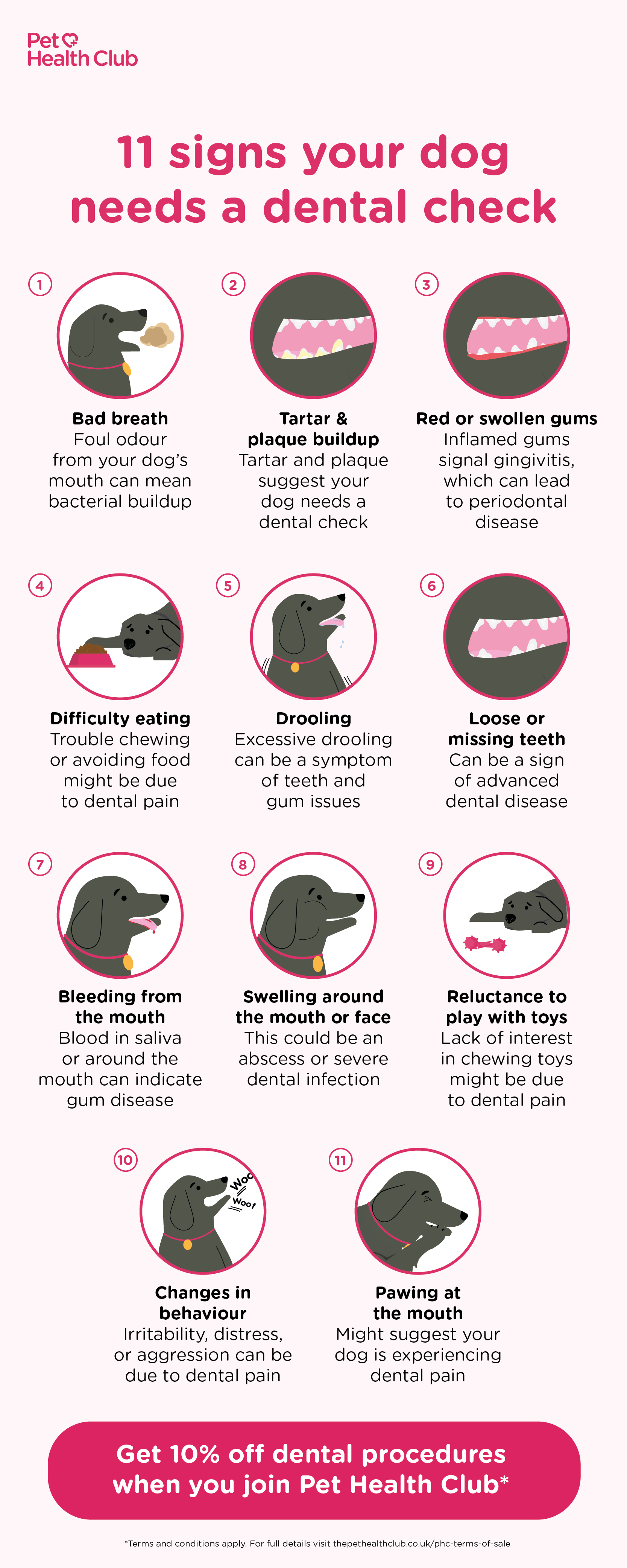9 things your vet wants you to know about your dog’s dental health
As a vet, I see the impact of poor dental health in dogs almost every day. In fact, dental disease is the mostcommon condition vets treat in dogs. Many owners don't realise just how important it is for their pet's overall wellbeing.
Brushing your dog's teeth and visiting your vet for a professional scale and polish are among the best ways to maintain their dental health. Yet, fewer than 4% of owners brush their dog's teeth daily and almost half never brush their teeth at all.
Here are nine things every pet owner needs to know to help keep their pet’s teeth and gums healthy.
1. Dental disease is more common than you think
Around 12.5% of dogs are diagnosed with dental disease every year, and nearly half of owners report their dogs have bad breath. This makes regular vet check-ups vital to catch problems early. Pets can hide their pain, so keep an eye out for signs like struggling to eat, dropping food, or avoiding chew toys. If you spot these, it's time to call your vet.
2. Bad breath isn't just unpleasant – it's a warning
If your dog has bad breath, it could be more than just smelly. It's often caused by plaque buildup or gum disease. In some cases, it can even be a sign of serious issues like kidney or liver disease.
3. Professional cleanings are essential
Even with regular brushing, pets need professional cleanings. Vets can remove tartar and plaque from under the gumline, which helps prevent serious dental disease.
4. Daily brushing is the gold standard
Brushing your dog's teeth daily is the best way to prevent dental disease. Use a toothbrush and toothpaste made for pets — never use human toothpaste, as it often contains toxic ingredients, like xylitol, and has flavours that animals dislike, such as mint.
Read more: How to brush your dog's teeth
5. Dental health impacts overall health
Bacteria from dental disease can spread through your pet's bloodstream and cause problems with their heart, liver, and kidneys. Keeping up with dental care can help prevent this from happening.

Read more: Expert advice to keep your dog's teeth and gums healthy
6. Dental chews can help (but choose wisely)
Vet-approved dental chews are a great way to reduce plaque and tartar buildup. However, avoid giving your pet hard objects like bones or rawhide, as these can break their teeth.
7. Diet plays a role in dental health
Feeding your pet dry kibble can help reduce plaque buildup compared to soft food. Special dental diets are also available to help reduce tartar. Speak to your vet about the best diet for your pet.
8. Start dental care early for the best results
Training your pet to accept dental care when they're young makes it easier to manage their dental health as they grow older. Start with short, gentle brushing sessions and use positive reinforcement to make it a good experience. Also, the earlier you catch dental disease, the easier it is to treat.
9. Small breeds are more susceptible
Smaller breeds like Toy Poodles and Cavalier King Charles Spaniels, as well as flat-faced breeds like Pugs, are more likely to have dental problems. This is often because their teeth are more crowded, making it harder to keep them clean. If baby teeth don't fall out when the adult teeth come in, it can also cause overcrowding. Dental X-rays can help catch problems that are hidden under the gums.
Need more advice on your dog’s teeth?
Looking for more expert advice on maintaining your dog's dental health? Visit our dog dental care hub for all the essentials. If you are seriously concerned about your dog's teeth or gums, use our find a vet page to find your nearest vet, or speak to a vet online using our video vet service.
Looking for more expert advice on maintaining your dog's dental health? Visit our dog dental care hub for all the essentials.
Remember, prevention is always better than cure, so start taking steps today to protect your pet’s teeth. Members of Pet Health Club get six-monthly dental check-ups and 10% off dental procedures as part of their benefits.


